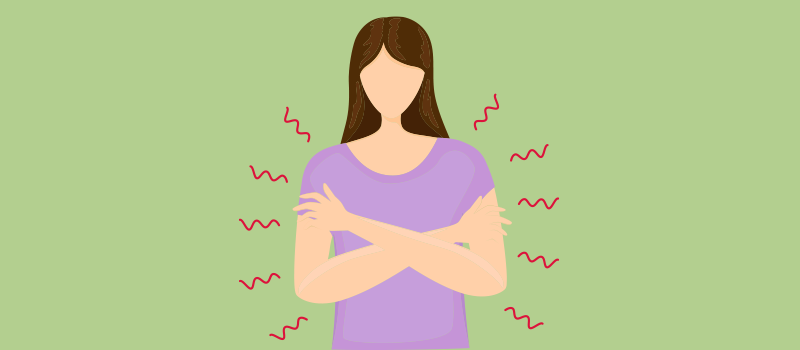How to Treat Swollen Tonsils

The tonsils are small, oval-shaped pieces of tissue in the back of your throat, one on each side. They are part of the immune system and your body’s first line of defense against viruses and bacteria that are ingested or inhaled through the mouth. As a result, the tonsils are vulnerable to inflammation and infection.
Tonsillitis is an infection of the tonsils that occurs mostly in children. However, rarely, adults can develop tonsillitis due to a decline in immune function after puberty.
Please keep reading to learn how to recognize symptoms of tonsillitis, how doctors reach a tonsillitis diagnosis, and what you can do to treat swollen tonsils.
What causes tonsils to swell?
The most common cause of tonsillitis is viruses like adenoviruses, influenza virus, parainfluenza virus, Epstein-Barr virus, herpes simplex virus, and enteroviruses. Less commonly, bacterial infections with Streptococcus pyogenes can cause tonsillitis (these are the same bacteria that cause strep throat).
Who is at risk of tonsillitis?
Very young children are at risk of developing viral tonsillitis. Children between the ages of 5 and 15 years are at risk of getting tonsillitis from bacterial infections. Kids are at higher risk of tonsillitis because they are often in close contact with other kids, which promotes the spread of infections. Adults who spend time with children, such as teachers, can also pick up infections and develop tonsillitis. Additionally, older adults are at a higher risk of getting tonsillitis due to a decline in immune function with age.
What are tonsillitis symptoms?
Common symptoms of tonsillitis include:
- Swollen and red tonsils
- Yellow or white patches on the tonsils
- Difficulty swallowing or pain with swallowing
- Sore throat
- Enlarged and tender lymph nodes (glands) in the neck
- Fever
Other symptoms may include:
- Headache
- Neck pain or neck stiffness
- Scratchy or muffled voice
- Bad breath
- Stomach pain
Young children who cannot talk yet may show signs and symptoms such as loss of appetite, fussiness, and excessive drooling.
Is my throat pain strep throat or tonsillitis?
It’s important to have tonsillitis diagnosed by a healthcare provider. Treatment for tonsillitis depends on the cause. Tonsillitis caused by bacteria is treated with antibiotics. Viral infections, on the other hand, will not respond to antibiotics.
You should see your doctor if you have a severe sore throat with fever, your symptoms last more than 48 hours, you have mouth and throat difficulty, pain with swallowing, and/or you feel extremely weak and fatigued. Seek emergency medical attention if you have difficulty breathing or swallowing or notice labored breathing in your child.
How do doctors diagnose tonsillitis?
Doctors diagnose tonsillitis based on your history, physical examination, and laboratory tests. Your healthcare professional may:
- Examine your throat with a flashlight.
- Check for a rash called scarlatina which can occur with strep throat.
- Feel your neck for lymph nodes.
- Listen to your breath sounds with a stethoscope.
- Check for enlargement of the spleen in your abdomen (this is a clue that your inflamed tonsils could be to mononucleosis).
- Perform a simple test called a throat swab which involves taking a sample from the back of the throat. Test results may be available within minutes (rapid test) or could take several hours to a couple of days (this is a more reliable test).
- Send off a blood test, such as a complete blood cell count (CBC).
How do doctors treat tonsillitis?
Treatment depends on whether the tonsillitis is due to a viral or bacterial infection. Your doctor may prescribe antibiotics to fight infection if laboratory tests reveal streptococcal bacteria. The most common antibiotic used to treat bacterial tonsillitis is a 10-day course of penicillin. Alternative antibiotics are available for people who are allergic to penicillin. It’s important to finish the full course of antibiotics even if you or your child feels well. Failure to treat the infection completely can increase the risk of complications like rheumatic fever.
Tonsillectomy (neck surgery to remove the tonsils) is recommended if a person has frequent tonsil infections or chronic (long-lasting) tonsillitis that does not respond to antibiotics. Tonsillectomy may also be offered if there are complications such as breathing difficulties, trouble swallowing, choking risk, abscess formation, or a medical condition like obstructive sleep apnea. The surgery itself is done as an outpatient procedure (you can go home the same day). Recovery from tonsillectomy takes anywhere from a few days to 2 weeks.
How to treat swollen tonsils at home?
Again, it’s important to have tonsillitis treated by your family doctor to prevent complications. However, there are several home remedies to help you stay comfortable, regardless of whether it is a viral or bacterial infection causing the tonsillitis.
- Get plenty of rest.
- Drink lots of fluids, mainly warm water, to stay hydrated.
- Gargle with warm salt water.
- Suck on throat lozenges or use throat sprays for comfort.
- Eat and drink soft foods (drinking warm liquids like herbal teas or eating cold foods like ice pops or frozen yogurt can soothe irritation in the soft tissue of the throat). Avoid spicy or sharp foods that can cause further irritation of the mucous membranes in the throat.
- Use a cool air humidifier to reduce dry air, which can irritate the throat.
- Avoid irritants like cigarette smoke and household cleaning products.
- Treat fever, reduce pain, and reduce swelling with over-the-counter medications like acetaminophen (Tylenol) and ibuprofen (Motrin, Advil). Be sure to check appropriate doses for children. Do not give children younger than 18 years aspirin, as this increases the risk of a serious condition called Reye’s syndrome.
How long do tonsils stay swollen?
Symptoms of acute tonsillitis typically last 3-4 days but may continue for up to 2 weeks. Chronic tonsillitis is a long-term infection that can last several weeks or more. Recurrent tonsillitis occurs several times a year and may require treatment with tonsillectomy surgery.
How can I prevent tonsillitis?
You can lower your risk of tonsillitis by:
- Practicing good hand washing hygiene.
- Coughing and sneezing into a tissue.
- Not sharing glasses or utensils with others.
- Replacing your toothbrush after a diagnosis and treatment for tonsillitis.
- Staying home when you are sick to prevent spreading a bacterial or viral infection to others.
References:












SOCIAL